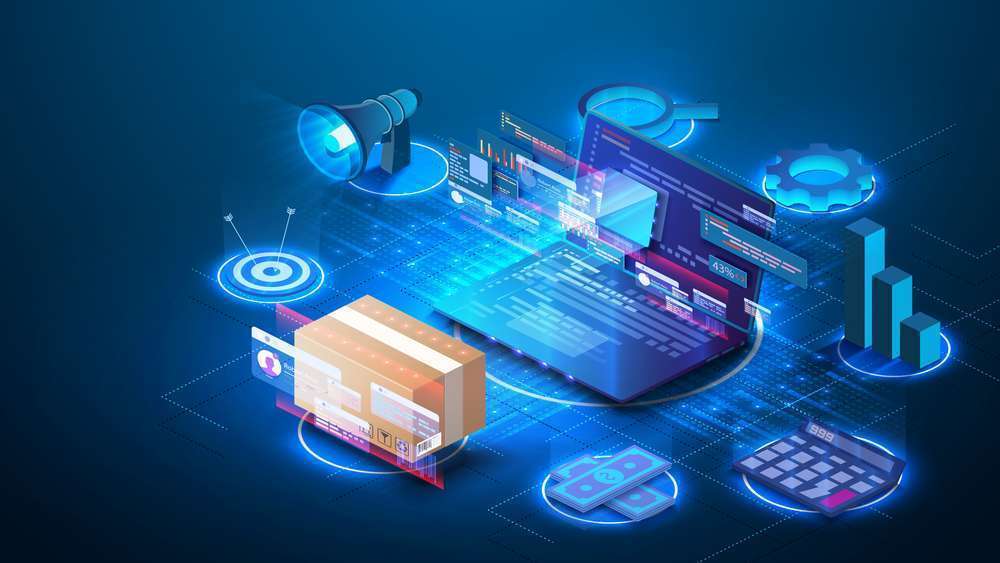
Revolutionizing Supply Chains: The Transformative Role of Blockchain in Ensuring Transparency and Security
Introduction
In today’s technological world, a transparent and secure supply chain makes the business environment critical to the company. Traditional supply chain systems often confront counterfoil customer confidence and vulnerability to fraud.
Supply chain transparency has developed as the most important requirement in this competing market. It ensures that the business knows about every activity of the supply chain operations and can communicate such information inside and outside the organization. Perhaps the biggest burning problem that remains for businesses is tracking goods across complex supply chains.
Blockchain, therefore, is a disruptive solution to issues in supply chain management. It delivers an immutable, decentralized ledger that could provide an even greater level of transparency, traceability, and, most importantly, security.
The Need for Blockchain in Supply Chain There are huge impacts if brand reputation and customer trust are affected due to the absence of transparency. In general, the ability of the brand to largely outline an ethical and sustainable supply of products takes place in the backdrop, which the brand’s consumer loyalty and trust greatly reflect.
Such commodities have drawn the attention of the world’s leading brands, including Walmart and Nestle, which have turned to blockchain technology to ensure transparency in their respective supply chains.
This sharing ensures safe, transparent, and, more so, tamper-proof sharing of information in the supply chain, making it an ideal tool for tracking goods through the supply chain.
Blockchain & Supply Chain: The Benefits
Enhanced Efficiency of Work
Classic supply chains have many intermediaries, and records are manually kept for a long time. Blockchain technology results in smooth operations of decentralized, transparent ledgers that eliminate intermediaries and increase the speed of transaction recording.
Features of the blockchain, like self-acting smart contracts, can conduct automated operations in the supply chain from confirmation to settlement of payments. They do make a whole lot of differences in the supply chain.
Reduced Risk It is one of the most important parts of efficient and safe operations. The supply chain includes many transactions and other people who maintain the record of transactions. Traditionally, the supply chain has many limits in the visibility of fraudulent detection if any counterfoil or manipulation has been done in it.
Blockchain is a term for assuring that all transactions are recorded on a final and irreversible audit trail. It secures them in a decentralized ledger; therefore, the transactions cannot be changed or edited. Blockchain can improve the level of trust and may reduce the Risk due to fraud and other types of suspicious activities.
There are many other benefits of blockchain in the supply chain; the above are prominent.
How Does Blockchain Enables Transparency in Supply Chain Real-Time Monitoring
Blockchain technology ensures that all participants can allow, synchronize, and decentralize data for real-time tracking. It offers the best visibility of the operations in the supply chain, and the loss of information or transactions through registration is minimal.
The decentralized nature of blockchain increases the level of security in handling data while reducing risks associated with attempts by unwanted parties to change such data, thus maintaining a high level of trust and reliability in supply chain operations.
Verification and Authentication:
The product will be assigned a unique digital code to verify its authenticity, which will be recorded within a blockchain. After that, people can check the product’s authenticity by scanning the code. Customers and the brand can develop the confidence to buy the product, as they will feel assured of its genuineness, thus protecting this part of its reputation.
Traceability
That would mean that block-chaining could be used to build a tamper-proof chronicle of the movement of goods across the supply chain. This will greatly help companies that track products from their endpoint to the starting point, involving every intermediary stage.
This keeps the data safe and integral, with maximized transparency and traceability throughout the supply chain’s processes and activities.
Real-Life Case Study
FedEx
The worldwide global shipping giant FedEx has rolled out blockchain technology in its supply chain to bring openness and dependability to the highest standard. The FedEx approach will conform to the industry standard regarding where on the blockchain data storage should reside in relation to efficiently answering customer queries and dispute solving.
This will ensure that more authentic and timely shipment records are available through a strong and traceable shipping system. A Recent News Trend to Look Out For in 2023 witnessed this date as the world’s largest industrial company using blockchain and AI (Artificial Intelligence) technology for complex supply chain traceability. It made giant progress toward the resilience of the global supply chain.
Wrapping Up
The horizon of supply chain transparency is transforming through blockchain technology with a secure and decentralized ledger of activities and transactions. The widespread benefits across so many places contribute to the same’s adaptability. At the same time, this strategy has moved to transparent and trustworthy technology and should be implemented in companies that want to raise efficiency in supply chain processes.




